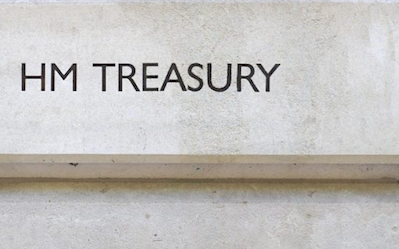By Mark McSherry — The debt interest payable of the UK government was £7.7 billion in September 2022 — £2.5 billion more than in September 2021 and the highest September figure since monthly records began in April 1997, according to latest figures from the Office for National Statistics (ONS).
“… the volatility in interest payable is largely because of the effect of Retail Prices Index (RPI) changes on index-linked gilts,” said the ONS.
UK public sector net debt excluding public sector banks (PSND ex) was £2.45 trillion at the end of September 2022 — around 98% of gross domestic product (GDP) and an increase of £213 billion or 2.5 percentage points of gross domestic product (GDP) compared with September 2021.
UK public sector net borrowing excluding public sector banks (PSNB ex) was £20 billion in September 2022 — £2.2 billion more than in September 2021 and the second highest September borrowing since monthly records began in 1993.
PSNB ex was £72.5 billion in the financial year to September 2022 — £24.9 billion less than in the same period last year but £35.6 billion more than in the financial year to September 2019, before thepandemic.
Carl Emmerson, Deputy Director of the Institute for Fiscal Studies, said: “Today’s numbers show that borrowing in the first half of this year was £72 billion, which is almost the same as the Office for Budget Responsibility’s forecast for this period in March.
“But this is little guide to how much borrowing will be over the whole of this financial year, as the huge cost of Government support for household and business energy use only began in earnest this month.
“Fuelled by this in last week’s Green Budget we forecast that borrowing this year could reach almost £200 billion, which would be nearly £100 billion more than the OBR forecast.
“A key focus for the next Prime Minister and their chosen Chancellor needs to be fiscal responsibility.
“We need a credible plan to ensure that government debt can be expected to fall over the medium-term.
“Given the timeline for determining the next Prime Minister, the degree of economic uncertainty, and the importance of getting this right, there is a strong case for taking a bit longer to make good decisions which have more chance of standing the test of time, rather than going ahead with a major fiscal event only a few days into the new PM’s tenure.”
